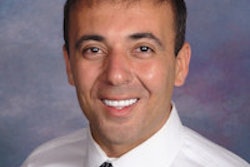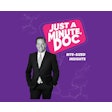
Improving cost-effective, quality care has always been a goal for healthcare providers. Because of ongoing regulatory pressures for value-based care focusing on outcomes rather than services provided, healthcare providers are tasked with supplying proof of quality care to receive incentive dollars and comply with mandates. The dental industry has a distinct advantage among healthcare providers -- with an opportunity to preview potential pitfalls already faced by general healthcare providers and then develop best practices based on lessons learned.
 Richard Moore, president of OneMind Health.
Richard Moore, president of OneMind Health.
Consolidation is one result of this changing healthcare environment. Although today's collaboration and consolidation in healthcare also include clinical care, the same financial and operational challenges faced by retail pharmacies present challenges to general healthcare providers and, ultimately, dentists. Paying attention to the role of enhanced financial and operational practices that support financial sustainability for collaborative care organizations as a whole, as well as individual members of the organization, will help dentists prepare for the future.
On the other hand, if a dentist does not want to become part of a larger group or affiliate with a collaborative care model, this is the time to evaluate the practice for the ability to develop standing power in light of potential future changes. Dentists who want to position themselves to succeed in a new era can learn the following lessons from general healthcare.
1. Implement a holistic, preventive care approach to dental care.
An emphasis on disease prevention, or minimizing exacerbation of symptoms, is a key strategy as collaborative healthcare organizations strive to control costs while improving outcomes. A dental provider who obtains a complete patient medical history, which includes existing conditions such as diabetes and a complete list of all medications, can develop a more complete care plan that addresses immediate oral health needs and provides a road map to guide future care. Collaborating with the patient to develop this plan improves the likelihood of compliance and strengthens the doctor-patient relationship.
2. Incorporate business technology into the dental practice.
“Dentists who want to position themselves to succeed in a new era can learn the following lessons from general healthcare.”
The ability to share information -- clinical as well as financial -- among all members of a collaborative organization is an ongoing challenge as hospitals and physicians integrate disparate systems. Dentists should be capturing patient health information and transmitting clean claims electronically. Communication with other providers should be done through secure email or other Web-based systems to set the stage for expanded collaboration in the future.
While most dentists have some form of practice management system in place, the system's function may be limited or may not be used to its fullest capability. For example, patients generally understand what they will pay for general healthcare treatment based on their insurance deductibles, co-pays, and maximum out-of-pocket limits, but dental insurance coverage varies widely and may provide limited coverage -- and it's constantly changing because of employer benefit decisions, such as bundled plans and movement to individual plans. Because dental patients often pay a greater percentage of the treatment costs, they have an increased interest in knowing how much they owe before they begin treatment. This knowledge not only enhances patient fee collections, but also meets patients' customer service expectations.
3. Integrate use of data to drive business operations.
Just as hospitals use data to develop population health programs or restructure their billing and collections department to provide better service, access to electronic patient information, financial performance reports, and status of outstanding claims enables a dentist to develop business strategies that are based on data rather than legacy processes.
One example is the patient recall process. Rather than sending postcard reminders for a dental cleaning based on the date of the previous visit, reminders can be sent based on individual patient needs, such as existing medical conditions or a treatment recommendation made at the last visit. Using data to drive the recall notice process enhances the wellness-centered focus of the dental practice.
Analyzing financial data to identify potential issues and areas of improvement is also critical to establishing processes that are efficient and productive, which lead to better patient care.
4. Develop a professional network to stay up to date on changes.
Staying current on national news related to healthcare is important, but each community is unique so it's necessary to stay in touch with local employers, healthcare organizations, and physicians. Asking about their challenges provides the opportunity to suggest collaborative solutions that include dentists, as well as drives the dentist to incorporate strategies within the practice to better meet patient and community needs.
Dentists can also initiate communication with other healthcare providers by securely sending patient reports to primary care providers. A dental report that helps the primary care provider better coordinate ongoing care for a medical condition contributes to a better patient outcome. While there may not initially be two-way communication between dentist and the healthcare provider, dentists should share the information for the optimum result with no expectation of receiving reports from the physician. However, it's important that the patient know the report was sent.
There is no crystal ball to tell dentists exactly how the transformation of healthcare will affect the dental industry, but it is safe to predict that changes will occur -- regardless, a smart business practice will always enhance patient care. Taking time now to create a wellness-centered clinical practice, evaluate business processes, incorporate technology, and network with other providers positions a dentist to better control the fate of the practice -- whether the future includes remaining a solo practice, joining a large practice, or affiliating with a collaborative care organization.
Richard Moore is president of OneMind Health, a revenue cycle management software and services company in Richmond, VA. He can be reached on Twitter at @OneMindHealth or via email at [email protected].
The comments and observations expressed herein do not necessarily reflect the opinions of DrBicuspid.com, nor should they be construed as an endorsement or admonishment of any particular idea, vendor, or organization.



















